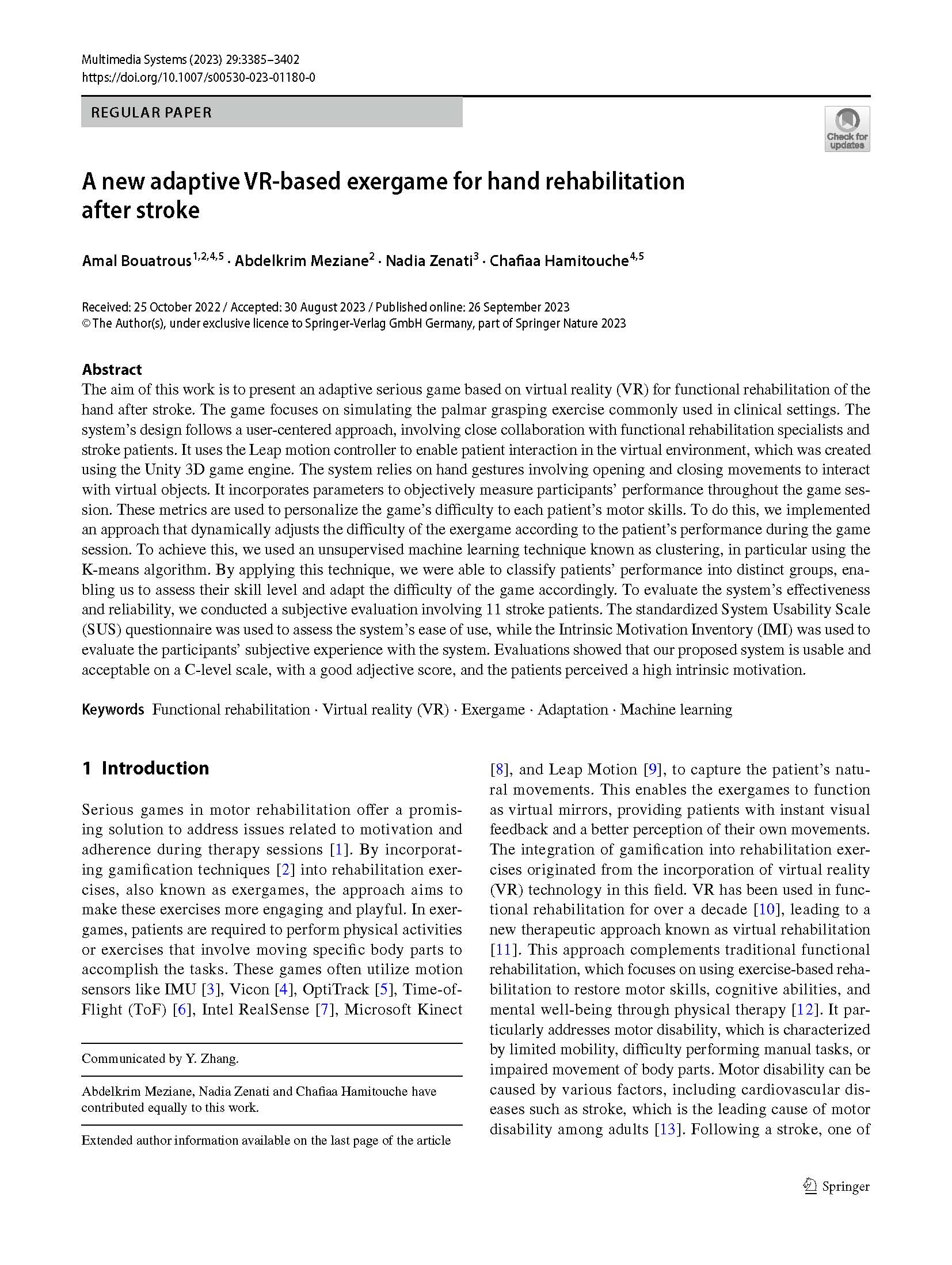A new adaptive VR-based exergame for hand rehabilitation after stroke
Article Ecrit par: Zenati, Nadia ; Meziane, Abdelkrim ; Hamitouche, Chafiaa ; Bouatrous, Amal ;
Résumé: The aim of this work is to present an adaptive serious game based on virtual reality (VR) for functional rehabilitation of the hand after stroke. The game focuses on simulating the palmar grasping exercise commonly used in clinical settings. The system's design follows a user-centered approach, involving close collaboration with functional rehabilitation specialists and stroke patients. It uses the Leap motion controller to enable patient interaction in the virtual environment, which was created using the Unity 3D game engine. The system relies on hand gestures involving opening and closing movements to interact with virtual objects. It incorporates parameters to objectively measure participants' performance throughout the game session. These metrics are used to personalize the game's difficulty to each patient's motor skills. To do this, we implemented an approach that dynamically adjusts the difficulty of the exergame according to the patient's performance during the game session. To achieve this, we used an unsupervised machine learning technique known as clustering, in particular using the K-means algorithm. By applying this technique, we were able to classify patients' performance into distinct groups, enabling us to assess their skill level and adapt the difficulty of the game accordingly. To evaluate the system's effectiveness and reliability, we conducted a subjective evaluation involving 11 stroke patients. The standardized System Usability Scale (SUS) questionnaire was used to assess the system's ease of use, while the Intrinsic Motivation Inventory (IMI) was used to evaluate the participants' subjective experience with the system. Evaluations showed that our proposed system is usable and acceptable on a C-level scale, with a good adjective score, and the patients perceived a high intrinsic motivation.
Langue:
Anglais
Thème
Informatique
Mots clés:
Adaptation
Machine learning
Exergame
Virtual reality (VR)
Functional rehabilitation

